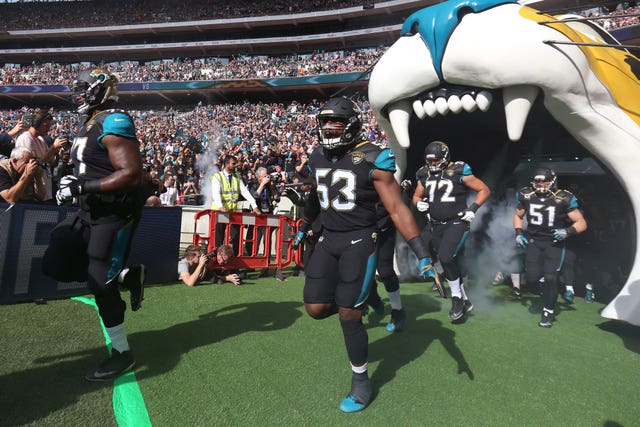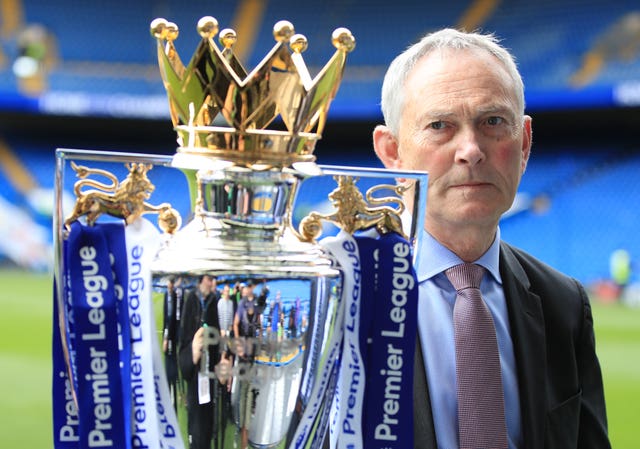Labour has called on the government to invest more money in grassroots football after Fulham owner Shahid Khan withdrew his £900million offer to buy Wembley.
The Football Association had hoped to use £600million of that sum to start an endowment fund to transform community facilities across the country over the next 20 years.
The idea divided English football from the moment it was first revealed in April and, with the FA Council set to vote on the matter next Tuesday, it had become clear it would not be possible for the FA to claim it had a strong mandate to sell the stadium.
News of Khan’s decision was greeted with disappointment by the Football Foundation, the charity that would have channelled the money to community projects, Sport England and the sports minister Tracey Crouch, all of whom described it as a missed opportunity to address football’s most important issue.
Football Foundation statement on Wembley sale withdrawal: pic.twitter.com/7Lw8nABhxv
— Football Foundation (@FootballFoundtn) October 17, 2018
According to the FA, only one in three community grass pitches is of adequate quality, which meant one in six games were cancelled last season.
It is understood the FA is still optimistic Khan could be persuaded to return to the table, something the American billionaire himself said he would be willing to do “under the proper circumstances” in a statement on Wednesday.
The national governing body also hopes the debate about facilities, which has been sparked by Khan’s offer, will continue and if selling Wembley is not the answer, other solutions will emerge.

The MP for Tooting told Press Association Sport: “With the Wembley sale being called off, the question regarding how we invest significantly in grassroots football remains unanswered.
“The government must step up with a programme that commits to providing the funding necessary to evolve our grassroots. It is a fantastic opportunity for the government to show they take this matter seriously as the long-term effects will be felt for decades to come.”
Others, however, want to look elsewhere within the football industry for answers.
— Gary Neville (@GNev2) October 17, 2018
The Football Supporters’ Federation conducted its own consultation process on the proposed sale and two thirds of the 2,000 fans who took part said they opposed selling Wembley “under any circumstances”.
In a statement, the FSF chairman Malcolm Clarke, who is also an FA councillor, said: “While the majority of fans will be pleased the stadium will remain in the control of the FA, they recognise the need for much greater investment in grassroots pitches.
“It is a sobering thought that the Wembley sale would have yielded £590million (the cash part of Khan’s offer, minus deal fees) and yet English football pays £250million each year to agents.”
Former England and Manchester United defender Gary Neville is another critic of the deal who believes grassroots facilities should be funded by a levy on agents’ fees.

For many in the game, including ex-FA chairman David Bernstein, the more obvious solution is to get Premier League clubs to share more of their wealth.
Speaking to BBC Radio 5 Live, Bernstein said: “My view has consistently been that the Premier League should be levied, money should go to the FA, which would be distributed to the wider game and which would make the selling of Wembley unnecessary. A Premier League tax if you like.”
A possible basis for this would be the commitment the Premier League gave the government’s Football Task Force in 1999 that it would set aside five per cent of its income from 2001 for the grassroots game.
This promise was made in return for the government backing the league’s right to sell its broadcast rights collectively.
I’m pleased the bid to sell Wembley has been withdrawn we need a national stadium to keep our history/status, we are getting great players coming through but we still need to invest in grassroots I’m certain this can be done without selling @wembleystadium
— Peter Shilton (@Peter_Shilton) October 17, 2018
The value of those rights has now reached £8.4billion for the current three-year cycle but the league has never hit that five per cent target.
That is not to say it has done nothing, though, as the Premier League, FA and government set up the Football Foundation in 2000 and the league has invested £302million – compared to the FA’s £299million and government’s £273million – via the charity over the last 18 years.
It is currently paying £24million a season to the Football Foundation as part of a wider £100million annual investment in community facilities, participation programmes and education projects, as well as the solidarity and parachute payments it gives to English Football League clubs.
Whether this is enough, though, is certain to be one of the biggest items in the in-tray for the new Premier League chief executive when they take over from Richard Scudamore, who is leaving at the end of the year after two decades in charge.






